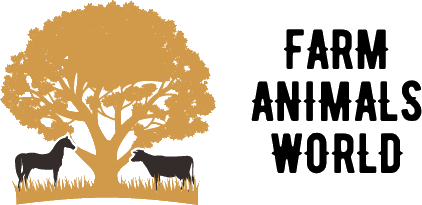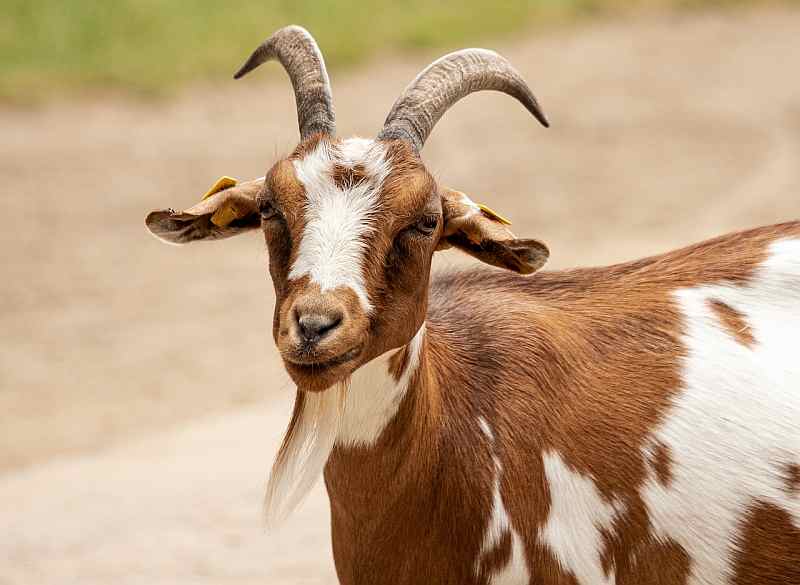Ever wonder how long a goat can live? You’re not alone in this curiosity. As an owner, breeder, or simply a goat enthusiast, it’s essential to understand the lifespan of these intriguing animals.
Genetics, diet, healthcare, and environment significantly determine their longevity. But it’s not just about the years in their life; it’s also about the life in their years.
Wouldn’t you want to know how to maximize both for your caprine friends? Stay with us as we unravel the intricacies of the lifespan of a goat.
Understanding Goat Lifespan
To truly understand the lifespan of a goat, you’ll often need to delve into the specifics of their breed, environment, diet, and healthcare. ‘Goat Breeding Practices’ play a pivotal role in this. Breeding goats that are genetically strong and resistant to diseases can significantly extend their lifespan.
It’s not just about breed, though. The environment, particularly stress levels, can impact a goat’s longevity. ‘Stress Management in Goats’ is crucial, as chronic stress can lead to health complications, reducing their lifespan.
A diet abundant in nutrients and a robust healthcare regimen can also contribute to a longer, healthier life for goats. Hence, understanding goat lifespan isn’t a single-faceted concept but a complex interplay of various factors.
Influential Genetic Factors
Building on the idea of ‘Goat Breeding Practices’, let’s examine the genetic factors significantly contributing to a goat’s lifespan. Genetic diseases are a prime factor to consider. They can severely truncate a goat’s life expectancy. The potential for these diseases can be inherited from parent animals, indicating the importance of prudent breeding practices.
You need to consider the breeding implications carefully. Unintended crossbreeding can introduce harmful genetic traits, possibly resulting in congenital disabilities or disease susceptibility. Conversely, deliberate selective breeding can foster resilience and longevity, enhancing overall lifespan.
Genetics plays a critical role in determining a goat’s overall health and lifespan. Understanding these influential genetic factors allows for informed breeding decisions, contributing to the subsequent generations’ longevity and quality of life.
Impact of Diet on Lifespan
You might wonder, ‘How does a goat’s diet influence its lifespan?’
Well, the nutrient requirements for goats play a crucial role in their overall health and longevity.
The difference between harmful feeds and beneficial foods can significantly impact their lifespan, making the subject of diet an important one for goat owners and researchers alike.
Nutrient Requirements for Goats
How does the goat’s diet impact its lifespan? Well, the nutrient requirements for goats play a vital role in determining their lifespan. A balanced diet maintains Goat Hydration and aids in Parasite Control, two key factors in a goat’s longevity.
Proper hydration is essential for maintaining metabolic functions, while adequate nutrition helps to build immunity and resistance against parasites. Ingesting parasites through contaminated food or water can cause serious health problems, which could shorten the goat’s lifespan.
Moreover, the deficiency of essential nutrients can lead to diseases, reducing their life expectancy. Therefore, providing your goats with a nutrient-rich diet, clean water, and a parasite-controlled environment is crucial for a healthier, longer life.
Harmful Feeds and Lifespan
Just as a nutrient-rich diet contributes positively to a goat’s lifespan, feeding them harmful substances can significantly shorten their life expectancy. There are two critical areas to focus on here:
- Feed allergies: Goats can develop allergies to specific feeds. Symptoms can range from mild itching and discomfort to severe digestive problems. Over time, these can lead to weight loss and a general decline in health, impacting their lifespan.
- Toxic plants: Goats are known to eat various plants, but not all are safe. Some plants contain toxins that can be deadly to goats, causing immediate harm or long-term health issues.
Understanding and avoiding these risks can help your goats live long and healthy lives. It’s a scientific fact: what you feed them impacts their lifespan.
Beneficial Foods for Longevity
While it’s crucial to steer clear of feeds that might harm your goats, nourishing them with beneficial foods that can enhance their longevity is equally important. An optimal diet can hugely influence your goat’s lifespan, as good nutrition aids in immunity and overall health. Consider breed-specific diets, as different goat breeds might require slightly varied nutrition.
Goat hydration is another essential aspect. Clean, fresh water promotes digestion and helps keep their body temperature regulated. Nutrient-rich fodder, such as alfalfa and clover, is beneficial, too. These provide necessary proteins and vitamins, enhancing their overall health. Also, grains like corn and oats can provide a balanced diet, but moderation is key to avoid obesity.
Importance of Goat Healthcare
Ensuring your goat’s health isn’t just about increasing its lifespan and enhancing its quality of life and productivity. Disease prevention plays a critical role in maintaining your goat’s health. Regular vaccinations are crucial as they prevent common diseases that can significantly impact a goat’s health and productivity.
- Emotional Response
- Imagine your goat living a long, healthy, and productive life.
- Picture the satisfaction as you observe your goat free from disease and thriving.
Don’t underestimate the importance of goat healthcare. It’s not just about adding years to their life, but also adding life to their years. So, prioritize regular check-ups, maintain a balanced diet, and don’t overlook the importance of vaccinations. Your goat’s health and longevity depend on it.
Environmental Effects on Longevity
Your goat’s living conditions can significantly impact its lifespan, emphasizing the importance of understanding and managing the environmental factors contributing to their longevity. Climate change implications, for instance, can alter the availability of forage, increase the occurrence of diseases, or induce heat stress, all of which can shorten a goat’s lifespan. Similarly, habitat variations impact their survival rates. Dense forests, for instance, may harbor more predators or disease-bearing organisms.
| Environmental Factor | Impact on Lifespan |
|---|---|
| Climate Change | Alters forage availability, increases diseases, induces heat stress |
| Habitat Variations | Can increase predator or disease presence |
| High Temperature | Can cause heat stress, dehydration |
| Poor Air Quality | Can lead to respiratory problems |
| Lack of Forage | Can lead to malnutrition |
Therefore, you must provide a suitable environment for your goat to promote its longevity.
Maximizing Goat’s Life Expectancy
To maximize your goat’s life expectancy, it’s vital to implement specific health, diet, and habitat management strategies.
Begin by providing a balanced diet, rich in necessary nutrients and vitamins.
Regular Goat Exercises are equally crucial, ensuring proper physical development and health.
- Emotional impact can’t be underestimated:
- Happiness: A happy goat is a healthy goat. Incorporate fun activities in their routine, enhancing their mood and reducing stress.
- Stress Management: Minimize abrupt changes in their environment to avoid stress. A calm, serene habitat is conducive to longevity.
Detailed and regular health check-ups are paramount. Spotting potential health issues early can significantly impact your goat’s lifespan.
Be analytical and scientific in your approach, and remember, a healthy goat equals a long-lived goat.
Frequently Asked Questions
What Is the Average Weight of a Goat During Its Lifespan?
When considering goat nutrition, the average weight varies greatly. Influenced by factors like breed and predation impact, you’ll find goats typically range from 50 to 300 pounds throughout their varying stages of life.
Can Goats Communicate With Each Other and How Does It Impact Their Lifespan?
Yes, goats can communicate using a variety of vocalizations and physical cues. Understanding goat emotions and their social hierarchy often leads to healthier, less stressed goats, potentially increasing their overall longevity.
How Does the Lifespan of a Goat Compare to Other Farm Animals?
Compared to other farm animals, goats have a moderate lifespan. Adequate goat nutrition can extend it, while goat predators can shorten it. It’s crucial to balance their diet and protect them for longevity.
Are There Any Specific Breeds of Goats That Have a Notably Shorter or Longer Lifespan?
Certainly, breed longevity varies due to goat genetics. For example, Nigerian Dwarf goats outlive others, reaching up to 15 years. Conversely, larger breeds like Boer goats have shorter lifespans, typically around 8-12 years.
How Does a Goat’s Activity Level or Physical Exercise Affect Their Overall Lifespan?
Your goat’s activity level can significantly impact its lifespan. Regular exercise helps maintain optimal health. However, factors like diet and breeding age are crucial in determining your goat’s lifespan.
Conclusion
Surprisingly, goats can live up to 15-18 years if properly cared for. That’s right, your furry friend could be with you for nearly two decades!
Genetics, diet, healthcare, and environment all play crucial roles in a goat’s lifespan. Understanding and optimizing these factors can significantly enhance your goat’s life expectancy.
So, remember, a well-nourished, well-looked-after goat isn’t just a happy goat, it’s a long-living one.

